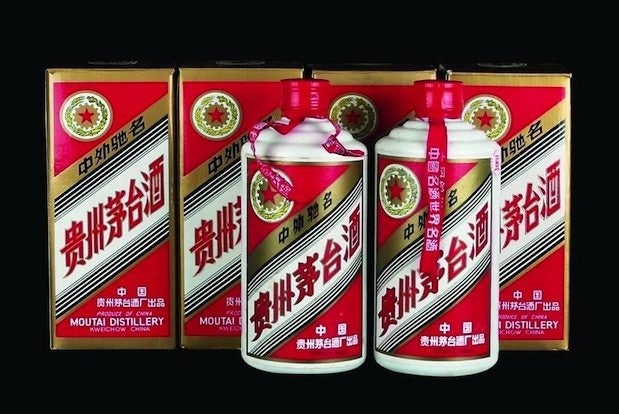
Dropping bottle prices have made more private buyers take an interest in Moutai.
High-end baijiu producer Moutai posted a significant drop in annual growth today thanks to China’s anti-corruption campaign, but the company says it’s in the midst of a comeback thanks to its efforts to find revenue from more non-government sources.
The company posted dramatically lower growth numbers than last year in its 2013 year-end earnings report today, revealing annual net profit growth of 13.7 percent. This may seem high compared to some lagging luxury growth rates in the midst of China's slowing economy, but is a massive drop from last year’s 52 percent growth.
“The year 2013 was the most challenging year for the company as it makes breakthrough developments by leaps and bounds,” said the company’s Chinese-language financial report. “It was a year of many hardships; the international and domestic situations were tangled and complicated, while the industry continues to make deep adjustments.”
The company’s stock has taken a hit along with its profit growth. The Shanghai-listed firm’s shares were more than halved from their peak in mid-2012, before the Chinese government’s anti-corruption campaign was announced. They remained in decline and hit their lowest number in early 2013.
However, there are now signs of a slight bounceback, says The Wall Street Journal:
But the stock is now up more than 20% so far this year, thanks to wealthier Chinese who are increasingly buying bottles for weddings and business banquets, says Stella Zhang, managing director at Singapore-based APS Asset Management, which began buying the stock at the end of last year.
These purchases for non-government special occasions are essential for the company, which has seen its income from official banquets dry up in the wake of the government’s austerity campaign. The state-owned enterprise’s fiery liquor was named a national liquor in 1951, and has been served at diplomatic banquets in addition to the more frowned-upon lavish feasts of government officials.
The company states that there has been an uptick in private buyers, posting sales growth of 40 percent in January from last year. Out of several reasons for this rebound, the main one appears to be the declining price of Moutai bottles. According to The Wall Street Journal,
The price of the firm’s flagship product—a 500 mL 53% alcohol by volume bottle—has been falling from a more than 2,000 yuan a bottle high in 2011. But now that Chinese consumers who may not have been able to afford Moutai before are buying, prices seem to be stabilizing around 1,100 yuan, says Ms. Zhang.
In addition, the brand has been working to reach international private buyers, and set up a subsidiary in 10 provinces or municipalities across China for customized products, with a sales target of 1 billion yuan (US$163 million) this year, 3 billion yuan (US$488 million) in 2015, and 5 billion yuan (US$814 million) in 2016.
In 2014, non-government buyers aren’t expected to completely make up for the sales loss—thanks to the ongoing anti-corruption drive, its annual report predicts another difficult year—but it’s likely reassuring that customers other than bureaucrats can stomach the distinctive drink.